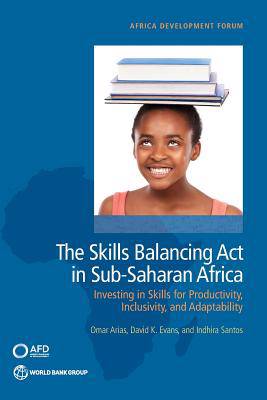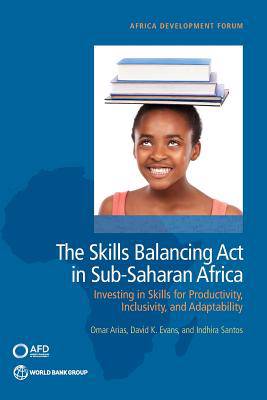
- Afhalen na 1 uur in een winkel met voorraad
- Gratis thuislevering in België vanaf € 30
- Ruim aanbod met 7 miljoen producten
- Afhalen na 1 uur in een winkel met voorraad
- Gratis thuislevering in België vanaf € 30
- Ruim aanbod met 7 miljoen producten
The Skills Balancing Act in Sub-Saharan Africa
Investing in Skills for Productivity, Inclusivity, and Adaptability
Omar Arias, David K Evans, Indhira SantosOmschrijving
Sub-Saharan Africa has the youngest population of any region of the world, and that growing working-age population represents a major opportunity to reduce poverty and increase shared prosperity. But the region's workforce is the least skilled in the world, constraining economic prospects. Despite economic growth, declining poverty, and investments in skills-building, too many students in too many countries in Sub-Saharan Africa are not acquiring the foundational skills they need to thrive and prosper in an increasingly competitive global economy. This report examines the balancing act that individuals and countries face in making productive investments in both a wide range of skills - cognitive, socio-emotional, and technical - and a wide range of groups - young children through working adults - so that Sub-Saharan Africa will thrive.
Specificaties
Betrokkenen
- Auteur(s):
- Uitgeverij:
Inhoud
- Aantal bladzijden:
- 378
- Taal:
- Engels
- Reeks:
Eigenschappen
- Productcode (EAN):
- 9781464811494
- Verschijningsdatum:
- 30/05/2019
- Uitvoering:
- Paperback
- Formaat:
- Trade paperback (VS)
- Afmetingen:
- 150 mm x 226 mm
- Gewicht:
- 612 g

Alleen bij Standaard Boekhandel
Beoordelingen
We publiceren alleen reviews die voldoen aan de voorwaarden voor reviews. Bekijk onze voorwaarden voor reviews.











